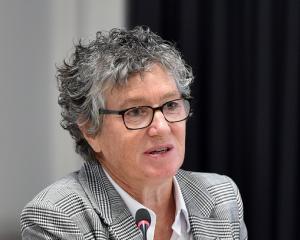
The Dunedin Casino Charitable Trust gave the training centre a $40,000 grant to continue its work, training dogs to detect cancer cells in urine samples.
K9 Medical Detection New Zealand founder and chief executive officer Pauline Blomfield said the funding was ‘‘crucial’’ to their work and it meant ‘‘a huge amount’’ to her and her colleagues.
‘‘Currently, our focus is on the early detection of bowel cancer,’’ she explained.
‘‘Given that in New Zealand, 23 people die every week from the disease, we are working on early detection for all ages.
‘‘What that means as far as the funding is concerned, is that this will enable us to purchase additional specialised scent detection equipment, extra sterilisers for our laboratories, and fridges and freezers to hold our patient samples.
‘‘They’re all crucial to our work, so we really are extremely grateful to the trust.’’
She said five dogs were being trained to sniff urine samples and detect whether cancer cells were present.
‘‘Basically we train dogs in a clinical setting to recognise and to alert [make a clear signal that researchers can understand] to the specific odour from cancer cells.
‘‘We use hundreds and hundreds of samples, so having that right equipment is really crucial.
‘‘The dogs are extremely accurate in their detection work, so we’re really quite excited about the work we’re doing.’’
Mrs Blomfield said the centre was about to embark on an expansion of the dog training.
‘‘We’re working to commence research for early detection of ovarian cancer next year.
‘‘Again, given that one woman dies every 48 hours from ovarian cancer, this is really, really important.
‘‘We’re quite passionate about getting this under way.’’
She said any medical research was a lengthy process and there were some very strict guidelines to follow.
‘‘So you can appreciate that we must adhere to the same robust and rigorous testing as any other test.
‘‘Our aim is to create a simple urine diagnostic test to be used as a value-added tool in the fight against cancer.’’












